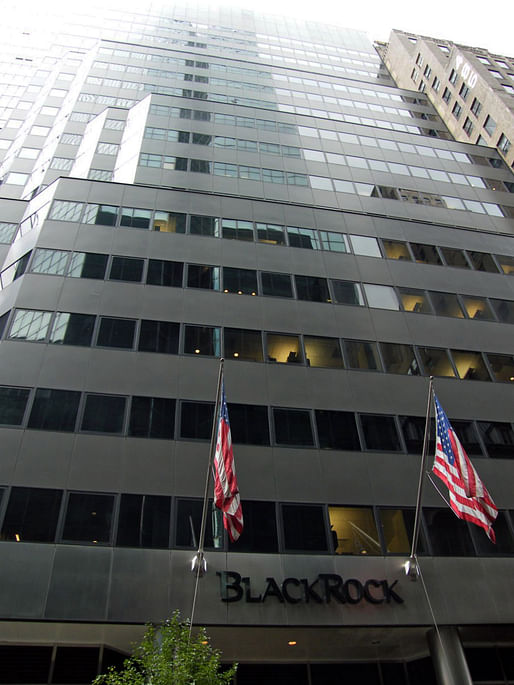

BlackRock, the world's largest asset management firm, has announced that it will use climate risk assessments and environmental sustainability as guiding metrics for how it makes investment decisions moving forward. The impact of this shift could have profound changes for the architecture and construction industries.
The announcement comes from BlackRock CEO Laurence D. Fink via an annual investment forecasting letter sent out to customers at the start of the year. In the letter, Fink writes "Even if only a fraction of the projected impacts [of climate change are] realized, this is a much more structural, long-term crisis. Companies, investors, and governments must prepare for a significant reallocation of capital."
Fink adds, "The evidence on climate risk is compelling investors to reassess core assumptions about modern finance." And as a result, the firm will seek to prioritize investments in that divorce themselves from fossil fuel industries, provide public transparency to the activities that are being supported, and support the "move to a low-carbon economy."
The stark language represents the latest in a series of recent efforts undertaken by Fink to reorient the firm's financial activities in light of both changing economics for certain fossil fuel investments like coal, and amid pressure from activist groups pushing for fundamental change in the financial sector. Demographics are also guiding the decision-making, as Fink explains: "And as trillions of dollars shift to millennials over the next few decades, as they become CEOs and CIOs, as they become the policymakers and heads of state, they will further reshape the world’s approach to sustainability."
BlackRock's reach is vast and encompasses many aspects of the built environment. The group handles investments for many public and private pensions, for example, as well as other financial entities. According to The New York Times, BlackRock currently manages roughly $7 trillion in investments through a wide variety of financial instruments, including individual buildings, Real Estate Investment Trusts, commercial mortgages, and other initiatives that generate significant construction activity. That includes over $21 billion in real estate investments across the world, including stock holdings in major commercial office developers like Boston Properties and Hudson Pacific Properties as well as with residential developers like AvalonBay Communities, according to a recent annual report. These developers, in turn, work with a wide array of architecture firms to bring their investment projects to life.
BlackRock, however, is also a significant stockholder in private prison companies like GEO Group and CoreCivic, leaders of a cruel and inhumane industry that has seen a drastic expansion under the current presidential administration. The affiliation has drawn criticism to both BlackRock and institutions, like The Museum of Modern Art, that are affiliated with it—Fink sits on the museum's board of directors.
In addition, the company has pushed to invest money in initiatives that maintain a veneer of sustainability in recent years, like renewable energy generation. The company currently has investments in over 250 wind and solar projects across the world, according to a recent white paper authored by the firm, totaling over $5 billion in investments amid projects that include a 50-acre solar rooftop installation at the Port of Los Angeles, among others.
According to the white paper the company's asset managers are already moving to embrace sustainable investments into their long-term approach. The authors write, "We believe [environmental, social and corporate governance (ESG)]-related issues–ranging from pollution control to asset-level operational efficiency to the direct social impacts and benefits our assets can have – generate real financial impacts that will only grow in the future. We recognize the investment risks that ESG issues, including climate change, can present and the increasing need to build resilience into our global portfolios to ensure our assets continue to perform against projected environmental, climatic and societal changes."
Though it is unclear exactly how Fink's announcement will impact the firm's real estate portfolio and investment activities, the shift toward sustainable investments, whatever that might ultimately mean for the company and its shareholders, is due to impact the architecture industry in ways that have yet to fully come to light.
1 Comment
"Going green" just means chasing more money.
Block this user
Are you sure you want to block this user and hide all related comments throughout the site?
Archinect
This is your first comment on Archinect. Your comment will be visible once approved.